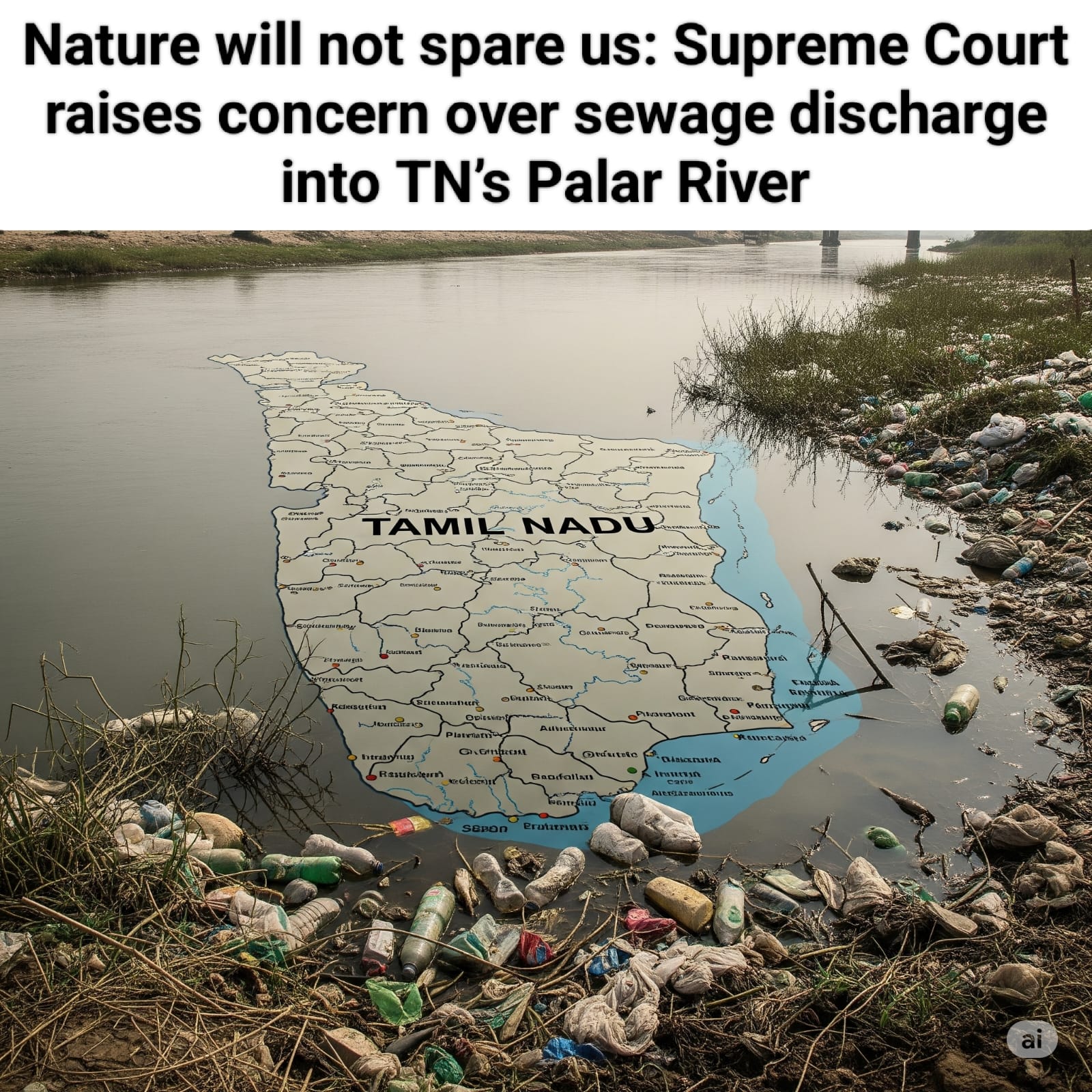Why in the news?
The honourable Supreme Court of India has expressed concerns on August 11,2025, over the discharge of untreated effluents by the manufacturing industries into the Palar river of Vellore district in Tamil Nadu and view to warn that such environmental degradation at an unprecedented rate will inevitably have worse consequences [Vellore District Environment Monitoring Committee v. The District Collector, Vellore District & Ors.]
Court’s Observations
A bench of Justice JB Pardiwala and justice R Mahadevan heard a plea which highlighted the concerns regarding ever increasing pollution which is caused by the tanneries discharging untreated waste directly into the Palar river in Vellore District. The bench heard submissions from all the parties, including of 3 collectors of different districts an officer from the Central Pollution Control Board, the chairman of the State Pollution Control Board, which a view to take an effective approach for the effective implementation of the directions which were issued in the judgement of the same case on January 30,2025.
Earlier Judgement
In the previous judgement of January 30, the bench ordered the constitution of a committee which is to be chaired by one retired High Court Judge, environmental experts and the representatives of the affected communities. The aim for the making of this committee was to audit the ecological damage and the restoration efforts for the nature in Vellore, ensuring that remedial measures are implemented effectively till the ecological damage that has been suffered gets recovered.
What is the next approach of the bench?
The bench stated that in a country like India wherein still a significant percentage of the population is dependent upon the river water for the drinking purpose, such pollution by the tanneries into the river body is quite alarming and warned that if we don’t stop today then nature will not spare us.“You all have portrayed a pathetic picture…just imagine—thousands and thousands of liters of sewage being pumped into the river. What must be the state of the river? We are sure that in our country, people still go to the river to fetch water; everybody does not have a water connection. Believe me, nature will not spare us. This is not a lecture; it is coming from the heart,” bench said.
The court observed two main issues on Monday which required immediate focus as per the bench,firstly, the adequate functioning of the Common Effluent Treatment Plants (CETPS) and the efficiency of the committee which is constituted to oversee the pollution control.
To address these issues, the court urged all officials with a special emphasis upon the optimum working of the CETPS, in absence of which untreated effluents will flow directly into the river, posing more serious consequences. “It is important to know how well CETPs are functioning… if CETPs aren’t functioning at their optimal level, then the trade effluents go straight into the river untreated, which is dangerous,” Court noted.
Author’s Information
Mansi, a third year law student currently studying at VIPS-TC under Guru Gobind Indraprastha University with a growing interest for legal research. She’s passionate about criminal justice, family law and advocacy for rights of women and children.

